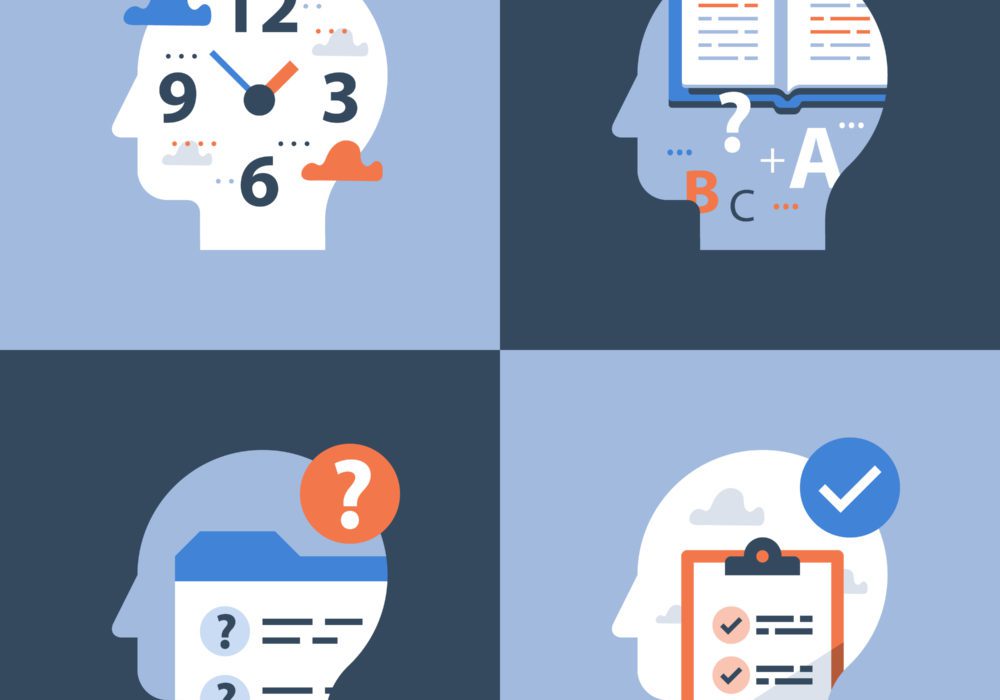Management job seekers at every level are facing increasingly complex hiring processes that often include assessment tests. Darden Alumni Career Services uncovers what these tests are all about.
Human resources departments are getting in on the game of predictive analytics — that is, using data to predict trends and behaviors. One area of note for job seekers is the use of pre-employment assessments.
There are many traditional ways for companies to evaluate a candidate’s competencies and experiences, from the initial screening interview (usually routine questions over the phone) to in-depth behavioral interviews (usually face-to-face interviews conducted by managers or selection panels) as well as different kinds of case-scenario interviews.
Now, candidates are frequently finding an unwelcome surprise in the hiring process: the requirement to complete an assessment test.
Many organizations are using an assessment to go beyond traditional interview techniques to evaluate executive and middle management personality traits, leadership styles and motivational drivers. The intention is clear: More data about a candidate can potentially help the hiring company find the best-fit candidate on a wider range of criteria, including culture, teamwork, versatility and other complex hiring principles.
These tests are self-report survey instruments specifically designed to predict a potential hire’s ability to perform, lead and stick with the job. There are three main types of preselection assessments used by employers:
- Personality — profiles behavioral traits and characteristics
- Aptitude — measures critical thinking, problem solving, attention to detail and other capacities of learning
- Cognitive/skills — gauges what you already know, such as math or verbal ability or a specific knowledge test such as a particular computer skill
There are myriad assessments and vendors on the market; too many to profile here.
There is also little data about which are most prevalent amongst corporate employers. SHRM (The Society of Human Resources) reported “thousands” of assessments available to companies in this fast-growing, $500-million-a-year industry, and that 22 percent of surveyed organizations were using a personality assessment in the hiring process.
As we coach Darden alumni, we’re seeing a steady increase in the use of assessments in the hiring process at all levels. Recent examples include a 1997 graduate in the late stages of interviewing for a senior technical sales role who was required to take the Watson Glaser Critical Thinking Test and a 2014 graduate under consideration for a director role at a national association who had to complete the TTI Success Insights assessment midway through the hiring process.
Other common assessment vendors are Predictive Index, Hogan, Wonderlic and Caliper. You can get an idea of what the hiring company might consider looking at this Caliper sample candidate report.
I spoke with a corporate recruiter who said they were piloting projects to include leadership assessments both for internal talent development and external recruitment because they believe the data will help them choose leaders with higher rates of assimilation and effectiveness and improve role retention. Crosby Baker (MBA ’10), an executive search consultant, also sees assessments playing a growing role in selection. He says, “the results are never a bright line for selection but are another data point to use for assessing a candidate and something that companies could also use for onboarding.”
How to Prepare
There’s seemingly a contradiction. On the one hand, we advise thorough and intentional preparation for all the typical interviews. On the other hand, when facing an assessment test, we tell candidates that there’s nothing specific you can prepare for. If you know the specific instrument you’ll take, you can do some basic research to become familiar with what to expect (for example, using a site like jobtestprep.com or 123test.com), but we don’t recommend paying for practice tests, especially in case of personality profiles. Beware, there are many sites trying to sell unnecessary “test prep.”
Here are some tips for navigating assessments as a candidate:
- Investigate the hiring process. Ask during the screening interview what you can expect when moving forward with an opportunity, including how many rounds and types of interviews. Ask, “Will there be any assessment tests included in your hiring process?”
- Understand the logistics. Where in the process does the assessment take place (before or after face-to-face interviews, for example)? What is the location of taking the test (most are administered online on your own time)? What is the typical length (some leadership questionnaires can take over an hour!)?
- Anticipate the outcome. Try not to be stressed or annoyed when facing an assessment. In most cases, the assessment is simply one data point that will be considered along with all the other information gathered in the interviews. Do inquire whether you will be given any results, feedback or reports from the assessment and, more importantly, how the company uses the data in its hiring decision.
- Simple tips for completion. Be well rested, ensure you’ve set aside ample time to complete the assessment, eliminate any distractions so you can focus, read the instructions carefully and be completely honest in your answers.
Knowing there’s a prevalence of assessments in candidate selection and being familiar with the various test types will allow you to confidently respond when one pops up. If you’re facing a challenging interview situation, reach out to Darden’s Armstrong Center for Alumni Career Services and schedule a coaching session!





